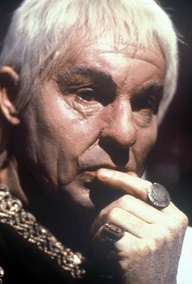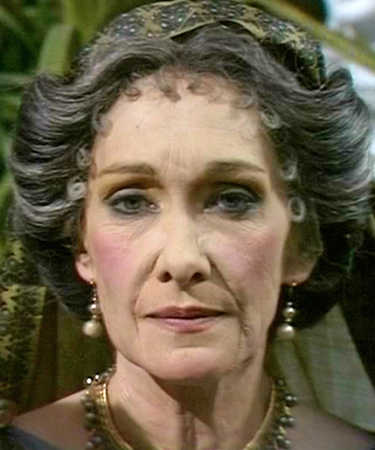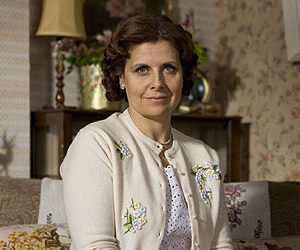Auksford
2013
©
Copyright Robin Gordon, 2013
Auksford
index -- Index
to Robin
Gordon's works
--
Index
to Roquana
Book
I: Savark Court
***
Chapter 1: I meet Roquana

Roquana Smuff
The common people cannot be said to have ever properly
appreciated the Holy Inquisition. Snoopers they call us, and
some
of the powers they attribute to us are beyond all reason. I
have
heard it said that every inhabitant of Sunday is assigned a personal
Inquisitor from the moment of his or her birth to remain with that
person until the moment of his or her death. Can you imagine
the
number of Inquisitors we should have to have if that were
true?
Or the complications that would ensue if an Inquisitor died before his
assignee? I remember some old woman told me this piece of
nonsense when I was ten or twelve. “Don’t
ever do
anything naughty,” she said, “or you’ll
make your
Guardian Inquisitor angry and he’ll tell the
authorities.”
“If
I have a Guardian Inquisitor,” I said,
“and he stays with me all the days of my life …
then he
must be the same age as me, and boys don’t split on each
other,
so I don’t have to worry.” The old woman
prophesied
that I’d come to a bad end, but the other adults laughed, and
it’s my belief that’s when I was picked to join the
team.
The Office of the Holy
Inquisition is quite a
select band. There are not all that many of us, so of course
we
cannot watch every man woman and child on the planet for twenty-four
hours a day, three hundred and sixty-five days a year. That
would
be absurd. I had always believed that the Inquisition
computer
allocated subjects for supervision entirely at random, and that it had
at its disposal the identities of the whole population without
exception. Then I discovered my mistake.

Dr Sulamun Tadler, Inquisitor (Derek Jacobi)
My story begins when I was allocated a girl of
19 called Roquana Smuff.
I had first, of course, to make contact
with the
subject. We Inquisitors cannot, as some people fondly
imagine,
tune in to the wavelengths of anyone on the planet. It is
necessary to arrange an initial meeting in which we come into the
physical presence of our subject, who, naturally, remains unaware that
anything unusual has occurred.
Roquana was on her way home when an
elderly man
stumbled in front of her, fell on the ground, and scattered his
shopping across the pavement. The helpless old man trick was
not
one I would have dared to play in our capital city, New Jackrusselham,
where swarms of hoypyu are always on the lookout for victims to
rob. Usually they prey on rival gangs, but I have seen the
occasional elderly citizen robbed and stripped entirely naked.
In Beddleham it was pretty
safe. A few of the
passers-by laughed derisively, and a hoypyu boy snatched up one of the
old man’s purchases and made off with it. Roquana,
however,
stooped, took the old codger by the hand, and helped him to his
feet. I, for it was I, in disguise, held her hand for
slightly
longer than necessary, and stared into her eyes while I stammered my
thanks.
“Well, you’ll
certainly know me
again,” she laughed.
“I will indeed,” I
quavered as she
stooped to pick up my possessions and stow them in my shopping bag.
 Dr Tadler
disguised as a confused old man
Dr Tadler
disguised as a confused old man
(Derek Jacobi)
She went on her way, and I returned to
the Palace of
the Holy Inquisition in New Jackrusselham. There, following
standard practice, I drank a potion brewed from certain herbs that are
grown in the palace gardens, lay down on my bed, connected my body to
the life-support system, and concentrated my mind on locating Roquana
and entering her mind.
She, of course, was totally unaware of
the unseen
eyes that saw whatever she did, the unheard ears that heard all that
she heard and all that she said, and the untraceable mind that followed
her every thought and knew her every impulse.
Roquana was a nice girl, a thoroughly
nice
girl. She lived with her widowed mother, was helpful about
the
house and was an efficient assistant in a nearby shop. Apart
from
her unfailing niceness there was nothing out of the ordinary about her,
and I was about to withdraw from her mind and give her a clean report,
when something unusual happened that piqued my curiosity.
As I believe I have already said the
Inquisitorial
computer is supposed to select and allocate subjects entirely at
random, including the whole population of Sunday from the oldest
inhabitant to the youngest, and from the poorest beggar to the
President herself, yet neither I nor any of my closest colleagues had
ever dealt with anyone from the upper echelons of society: the Lords
and Ladies, the members of the High Council, the Senate or the Holy
Synod, or even such subordinate bodies as the Monopolies Control
Commission. I had begun to suspect, though I knew it was
unwise
to voice such suspicions, that the random process was far less random
than I had been led to believe. Only to my wife and my
closest
colleague, Ulixondir Drow, would I ever have voiced such suspicions,
and even then we referred to treat it as a joke and to suppose that the
Grand Inquisitor reserved for himself and the Eminences, the senior
Inquisitors, the Monsignors, any investigation into members of the
establishment.
That was why my curiosity was aroused
when Roquana
and her mother received an unexpected visit from the Private Secretary
and the Chatelaine of no less a personage than Lord Savark, the
Chairman of the Monopolies Control Commission and one of the richest
men on the planet.
I decided not to withdraw at once,
justifying my
decision on the grounds that I had seen Roquana interacting only with
her social equals and inferiors in one of the poorer towns, and that to
secure a complete characterisation of my subject, I should see how she
behaved in the presence of the rich and powerful. It was
always
possible that even the nicest person might be tempted into some form of
dishonesty when confronted with the conspicuous consumption of the
wealthy, (even if it were only the snaffling of the odd biscuit from a
plate), or that they might indulge in obsequious flattery to secure
some minor advantage. If I were to be entirely honest, I have
to
admit that I also wanted to see how the great and the good behaved
towards the small and insignificant when they believed themselves
unobserved.
It was Secretary Gulls who began the
conversation. He and the Chatelaine had drawn up outside in
one
of those ridiculous carriages affected by the rich: electric, of
course, like any other vehicle on the roads, but equipped with an
entirely unnecessary array of artificial draught animals, in this case
a pair of dragons with flashing eyes, flapping wings and streams of
sparks issuing from their jaws. The idea was to intimidate
the
common people, to make them jump out of the way and impress them with
the importance of the occupants.
Despite the vulgar flashiness of the
car, which may
well have been the choice of his employer, or even of his
employer’s head stableman, the secretary made a very
favourable
impression on me, as he did on both Roquana and her mother.
Although obviously a man of considerable influence and importance he
had the knack of making the ladies feel that they had his full
attention, the ability to condescend without in the least making his
interlocutors aware of any hint of condescension. He was
indeed
the perfect conversationalist, achieving a combination of friendliness
and attention that could not fail to charm.
 Monsignor Gulls
(Unknown)
Monsignor Gulls
(Unknown)
He spoke of his employer, Lord Savark,
the guiding
hand behind the discovery and colonisation of Sunday, the man who had
organised the survey of the planet and picked out safe sites for the
new cities, as far as possible from the main concentrations of the
savage Tohu, (wild bloodthirsty beasts whose greatest delight would be
to feast on human flesh), the architect of their defence, the
civilising influence who had ensured that Sunday would be a morally
irreproachable place, and the founder of the League of Purity that kept
young men and women of the Sunday colonies free of the addictions to
alcohol, drugs and the sexual shenanigans that plagued so many frontier
planets.
He spoke too of his companion, Madame
Yowfrasinny
LaTower, the Chatelaine of Lord Savark’s country manor, the
organiser in charge of the whole household, with oversight over the
butler and his under-butlers and footmen, the housekeeper and her
maids, the cook and the kitchen staff, the head gardener and the
under-gardeners, the head-stableman and his staff of chauffeurs and
engineers who drove and maintained Lord Savark’s fleet of
vehicles. His admiration for Madame LaTower’s
wide-ranging
responsibilities, and the efficiency with which she carried them out,
was boundless.
 Madame LaTower,
the chatelaine (Sian Phillips)
Madame LaTower,
the chatelaine (Sian Phillips)
Of himself he said little directly,
beyond the facts
that he was Lord Savark’s secretary and that his name was
Gulls,
though it became obvious as he talked that secretary
was a modest title for a
man who seemed to be nothing less than Lord Savark’s right
hand
man and the organiser of both his social life and his business ventures.
On his entry I had mentally classed him
as Doctor
Gulls, the title of Doctor
being reserved for officials
of a certain standing, including not only medical men but civil
servants, lawyers, and Inquisitors such as myself. As he
talked I
began to think that, despite his obvious modesty, he must be at least a
Monsignor,
for he was
obviously the equal of the Chatelaine, whom he called Madame
LaTower, and possibly of
higher rank.
Now he began to enquire into Mrs
Smuff’s
circumstances.
“For you are not actually
a widow,”
he
said.
“I have to admit that I am
not, Sir,”
she replied. “I have to admit to you that I was
never
married, but I beg you not to think ill of me until you have heard my
tale. I am the daughter of a respectable clergyman, who may
still
be living for all I know, for I left the town where he resides as soon
as I discovered that I was pregnant, so as not to bring shame on an
honest and honourable man of the cloth, though it was not through any
shameless or immoral practice that I conceived my child.
“Her father was a
dentist. I went to him
for a course of treatment, and, as I was a rather nervous girl, afraid
of the drill and other instruments, he gave me an injection of
roquanine.”
“How fortunate,”
interrupted
Gulls. “So instead of enduring
the filling of your tooth,
you found it extremely pleasurable.”
“I did indeed, Sir,”
she said.
“He could have pulled out all my teeth and my fingernails one
after the other, and I would have begged him to carry on. He
filled my tooth, Sir, then his hands began to wander to other parts of
my body. I was like moulding clay in his hands,
Sir. He was
able to do whatever he liked, and that, Sir, is how my daughter was
conceived – and why I called her Roquana,
a name that reminds me
of my shame and, at the same time, reassures me that the fault was not
mine.”
“Why didn’t you
raise a complaint
against
the desecrator of
your virtue?” Gulls
asked.
“You could have had him struck off and
very probably forced to
compensate you.”
“Oh no, Sir,” replied Mrs
Smuff. He was the leading dentist in town, the chairman of
the
local dentistry faculty, and quite a bigwig in the World Dentistry
Association. He wasn’t just a doctor, Sir, he was a
monsignor, and no-one would have believed my word against
his. He
would have accused me of promiscuity and of trying to hide my
wickedness by an unjust accusation against him. My family
would
have been dragged through the courts. It would have killed my
parents. So I left them a note saying I had fallen pregnant
by a
boy who refused to marry me and that I was going away. I
begged
their forgiveness and asked them not to try to find me. As
far as
I know, Sir, they never did try. My father was well-known for
the
severity with which he dealt with girls in a similar situation, so it
would have been impossible for him to forgive his own daughter without
being accused of hypocrisy.”
“I see,” said Gulls,
“and is
Roquana acquainted with
the
story of
her
conception?”
“She is,” replied
Mrs Smuff.
“When she was old enough to understand, I told her
everything.”
“So your name is not really
Smuff?”
“No, Sir, it isn’t,
and I am not
prepared to tell you my real name because of the distress it would
cause to my parents and my brothers and sisters. I called
myself
Mrs Smuff because Smuff is a very common name.”
 Mrs Smuff
(Rebecca Front)
Mrs Smuff
(Rebecca Front)
“You realise, of course,
what a very great honour it
will be for
Roquana to enter
the household of
so great a
man as
Lord Savark?”
“I do,
Sir,” said Mrs Smuff
humbly. “I know she’ll be a good girl and
do her best
to give satisfaction.”
“Excellent,” purred
the secretary.
“I think everything is in
order. Lord Savark’s housekeeper, Mrs Broyn, will
pick
Roquana up
tomorrow.
Please have her things packed up and ready to go by two
o’clock.”
With that the secretary and the
chatelaine took
their leave.
“Do I have to go?”
said Roquana.
“I’d much rather stay with you. I
don’t want to
go off and work in Lord Savark’s estate.”
“Of course you have
to,” said Mrs Smuff
sharply – far more sharply than I had ever heard her speak
before. “We can’t not do what they
say.
It’s not an invitation
to work for them, it’s an order.
If you don’t go they’ll make sure your life
isn’t
worth living. Remember Mork Pottle? They sent for
him, and
he didn’t go, and within a couple of months he was
dead. Of
course you have to go. Just try and keep out of sight as much
as
possible. Be as inconspicuous as you can.”
Then they flung their arms around each
other and
wept, which, I must say, rather puzzled me, for this, surely, was a
great opportunity for Roquana to leave behind the poverty into which
she was born and to make her way in the world. Living and
working
at Lord Savark’s manor, and under the supervision of a man
like
Monsignor Gulls must open up to her possibilities of advancement far
superior to any she could find in Beddleham.
The Housekeeper’s carriage was
nowhere near as
flashy as that which had brought Monsignor Gulls and Madame LaTower,
though flashy enough in all conscience, with its pair of winged horses
that snorted, neighed and reared as it approached. Mrs Broyn
herself seemed kindly, and Roquana and her mother parted, tearfully but
with their composure comparatively unimpaired.

Mrs
Broyn, the Housekeeper (Unknown)
As we drove through the narrow streets
of Beddleham
the populace scurried out of our way, often heaving heavy bundles or
barrows aside to make way for the carriage, and saluting it most
humbly, for the people of Sunday, third planet of the system, are
imbued with gratitude to the nobility who discovered and organised the
settlement of this most wonderful of worlds, with its plethora of
different fruits and healing herbs and an atmosphere miraculously
attuned to the needs of its human colonists, and they take every
opportunity to show their respect. Roquana was now leaving
the
world of the common people to work directly for one of the greatest men
on Sunday. She had the honour of entering the service of Lord
Savark, and, though his staff was large, might well be actually spoken
to by the lord himself on occasion. Nevertheless I felt her
sadness at leaving her beloved mother, and her apprehension at moving
into a new social sphere of which she had no experience.
Then we left the city gates, crossed the
fertile
farmland, where labourers were working hard in the fields, and entered
the dark forest. The road led onward through the trees and
Roquana, I could feel, was nervous, as well she might be. Had
we
not been told over and over again, in newspapers, radio and television
broadcasts and the world-wide computer network, that the forests were
the domain of the savage Tohu, carnivorous apes who had already in the
short time we had been on Sunday developed an abiding hatred for humans
and a taste for our flesh. According to report after report,
they
lay in wait in the forest, and if any farm-labourer chanced to stray to
close to the boundary, or, as occasionally happened, took shelter in
the trees to relieve himself, the Tohu would seize him and tear his
living body apart, limb by limb, cramming his flesh into their bloody
mouths, while his fellows, terrified by his screams, would flee towards
the safety of the city.
“Aren’t you afraid
of the Tohu,
Ma’am,” she eventually asked Mrs Broyn.
“Bless you, no,
child,” the Housekeeper
replied. Savage they may be, but they have learned to respect
Lord Savark’s carriages. We always carry a gun, and
in the
early days we’d travel in convoy with a score of armed
men.
Many a Toho has paid for its aggression with its life, and now they
keep well clear of us. You’re quite safe in the
carriage,
and you’ll be quite safe at Savark Court.
There’s not
a Toho would come within a mile of it.”
Please
remember that this story is
copyright.
See
Copyright
and Concessions for permitted
uses.
Roquana:
Index -- Roquana:
Chapter 2: Lord Savark's household
Auksford Index.
-- Index
to Robin Gordon's works
Send
an e-mail to Robin
Gordon








